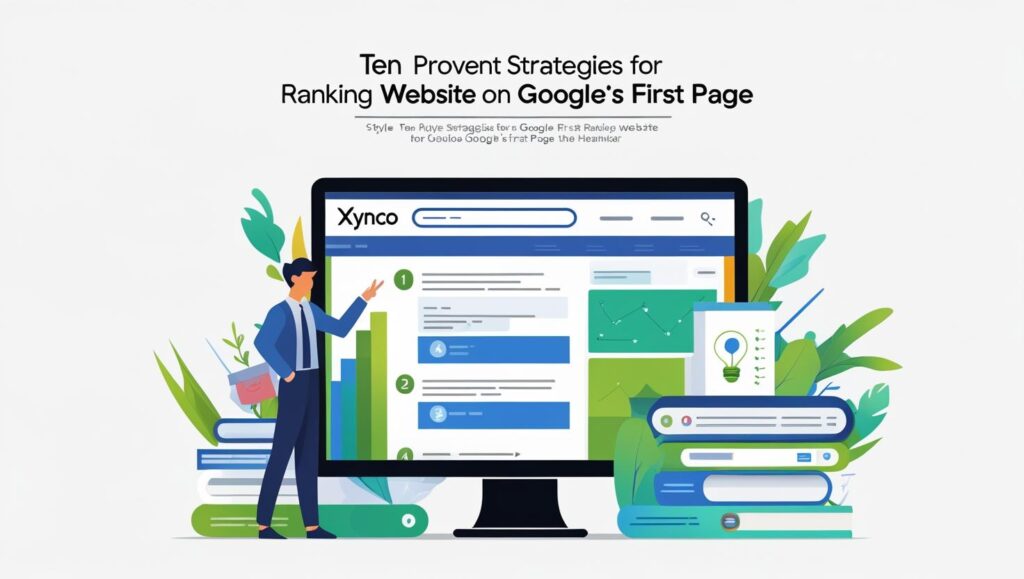Introduction: The Growing Importance of Voice Search Optimization
Voice search has become one of the most transformative technologies in recent years. From smartphones to smart speakers, voice assistants are now an integral part of how we interact with the digital world. In fact, with the rise of virtual assistants like Amazon’s Alexa, Apple’s Siri, Google Assistant, and Microsoft’s Cortana, voice search is revolutionizing the way people search for information. As this trend continues, businesses need to understand the importance of voice search optimization to remain competitive in the ever-evolving landscape of SEO.
In this blog, we will dive deep into what voice search optimization is, how it impacts SEO, the benefits and challenges associated with it, and provide actionable steps on how to optimize your website for voice search. Whether you’re new to voice search or have been optimizing for it already, this guide will help you understand its significance and how to leverage it effectively for your business.
What is Voice Search Optimization?
Voice search optimization refers to the practice of adjusting your content and website structure to accommodate the way users interact with voice-activated search tools. Unlike traditional text-based search, voice search queries are conversational, longer, and often more specific. This shift requires businesses to adjust their SEO strategies to ensure they are visible when people use voice search to find information, products, or services.
To optimize for voice search, businesses must focus on natural language processing (NLP), improve page load speed, and ensure that their content is easily accessible through voice queries. The key is to cater to how people speak, rather than how they type. Understanding this difference is crucial for creating SEO strategies that will capture voice search traffic.
Is Voice Search Optimization Worth It?
The short answer is yes—voice search optimization is absolutely worth it. With millions of people using voice search every day, failing to optimize for it means missing out on a significant portion of potential traffic. According to recent reports, voice search is becoming increasingly popular. More than 40% of adults use voice search at least once a day, and this number is expected to continue rising.
Voice search is particularly beneficial for local businesses, as many voice search queries are location-based. For example, a user might ask, “Where is the nearest coffee shop?” Optimizing for voice search ensures your business shows up in those localized results, driving more foot traffic to your store or business.
What is the Meaning of Voice Search Optimization?
Voice search optimization is essentially the practice of optimizing your website and content to be found through voice search. It involves focusing on how people naturally speak and asking questions, rather than typing search queries with specific keywords. This optimization process includes several strategies such as:
-
Improving website speed: Faster loading times ensure users don’t abandon your site when using voice search.
-
Natural language processing (NLP): Content should mimic the way people speak, using conversational language.
-
Local SEO: Most voice search queries are location-based, so optimizing for local search is crucial.
-
Structured data: Adding schema markup helps search engines better understand your content, which is especially helpful for voice search results.
By focusing on these key areas, you can ensure that your website is ready for the growing shift towards voice-activated search.
How Does Voice Search Affect SEO?
Voice search has a significant impact on SEO, reshaping how businesses approach optimization. Traditional SEO focused heavily on keywords, ranking factors, and content relevance. However, voice search brings a few new factors into play:
-
Longer, Conversational Queries: People typically use more natural language when speaking than when typing. This means that voice search queries tend to be longer, often in the form of questions like “What’s the best Italian restaurant near me?” Businesses need to focus on optimizing for these conversational keywords, ensuring they match user intent.
-
Local Search: Voice search is highly influenced by local intent. Users are more likely to use voice search to find local businesses or services. Optimizing your website for local SEO, adding your business to local directories, and maintaining an active Google My Business profile are essential for voice search visibility.
-
Featured Snippets: Voice search results often pull from featured snippets. To optimize for this, your content needs to be clear, concise, and answer specific questions directly. Structuring your content to provide immediate answers can significantly boost your chances of being featured in a snippet.
What Are the Disadvantages of Voice Search?
While voice search optimization has many advantages, it also presents a few challenges. Here are some of the drawbacks:
-
Accuracy Issues: Voice recognition technology is still evolving, and in some cases, it may not accurately interpret what users are saying, leading to incorrect search results.
-
Limited Search Results: Voice search often provides a single result, which means there’s less opportunity for businesses to capture multiple rankings for a given search query.
-
Privacy Concerns: Many users are concerned about privacy when using voice-activated devices, as they are constantly listening for commands. This could make some users hesitant to use voice search, limiting its growth potential in certain demographics.
-
Not Ideal for Complex Queries: While voice search is excellent for simple, direct queries, it is not as efficient for more complex or niche searches. For these queries, traditional text-based search is still preferred.
Can You Turn Off Voice Search?
Yes, you can turn off voice search on most devices. For example, on smartphones, you can disable voice search features in your device’s settings. On Google devices, you can go to the Google Assistant settings and disable the voice search feature. However, turning off voice search may reduce your convenience for using certain applications and services, so it is generally not recommended unless absolutely necessary.
Does Voice Search Use AI?
Yes, voice search relies heavily on Artificial Intelligence (AI). AI is used in natural language processing (NLP), which helps the voice search system understand spoken queries and interpret them accurately. Voice recognition technology, powered by AI, allows devices like smartphones, smart speakers, and other digital assistants to “listen” to commands and search queries, making voice search more intuitive and accurate over time.

Can You Pay for Better SEO?
While you can’t directly “pay” for better voice search SEO, investing in SEO services, including voice search optimization, can certainly improve your chances of ranking higher. Businesses often pay for SEO experts or agencies to help them refine their content, optimize their websites, and ensure they are compliant with the latest voice search trends.
SEO professionals can help optimize your site’s loading speed, structure, and content, making it more voice-search friendly.
How to Get Better SEO on Google?
To improve your SEO ranking on Google, follow these key strategies:
-
Keyword Research: Identify long-tail keywords, especially those in the form of questions or phrases.
-
Mobile Optimization: Ensure your website is mobile-friendly, as most voice searches are done on mobile devices.
-
Improve Page Speed: Slow websites are penalized by Google. Faster load times improve both user experience and SEO rankings.
-
Add Schema Markup: Help Google understand your content better by adding structured data.
These efforts will not only improve voice search SEO but will also help your general SEO performance.
What is the Future of Voice Search?
The future of voice search looks promising, with technology evolving rapidly. As voice recognition becomes more accurate, and AI continues to improve, voice search will likely become even more integrated into everyday life. Expect smarter, more intuitive systems that can handle a wider range of queries. The growth of smart speakers and mobile devices will also contribute to the increase in voice searches.
How to Increase Voice Quality?
Improving the quality of voice search results depends on multiple factors, including:
-
Clear and concise speech: Ensure you speak clearly and at a steady pace.
-
Device settings: Adjust your device’s microphone sensitivity for better voice recognition.
This helps the voice search tool better understand and process your query, leading to more accurate results.
What is SEO Speak?
SEO speak refers to the specific language and terminology used in digital marketing, particularly when it comes to optimizing content for search engines. This includes using keywords, meta tags, alt text, and structured data to make content more discoverable. For voice search optimization, SEO speak also incorporates conversational phrases and long-tail keywords. Unlike traditional SEO, which often focuses on short, targeted keywords, voice search queries are more natural and often in the form of full sentences or questions. For example, while a person might type “best pizza NYC,” they would ask a voice assistant, “What is the best pizza place in New York City?”
By adapting to these natural language patterns, businesses can increase their chances of being found via voice search, as search engines favor content that mirrors user queries.
How Do I Get My Business on Voice Search?
To get your business on voice search, you need to focus on several key strategies:
-
Optimize for Local SEO: Most voice searches are local, so it’s crucial to have an accurate and up-to-date Google My Business profile. Make sure your address, hours, phone number, and website URL are correct. Use local keywords, such as “near me” or specific neighborhood names.
-
Add Structured Data (Schema Markup): This helps search engines understand the content of your website better, increasing the chances of your business being featured in a voice search snippet.
-
Focus on Conversational Keywords: Tailor your content to answer questions directly. Use phrases like “How to,” “Best,” and “Where can I find” in your headings and content, as these are commonly used in voice search queries.
-
Mobile Optimization: Ensure your website is mobile-friendly, as the majority of voice searches are done on mobile devices.
-
Fast Load Speed: Voice search users expect immediate answers, so it’s crucial that your website loads quickly, providing a smooth user experience.
Which Techniques Should Be Avoided in SEO?
Certain outdated and spammy SEO techniques can harm your website’s rankings, especially in the context of voice search. These include:
-
Keyword Stuffing: Overloading your content with excessive keywords can lead to a penalty from search engines.
-
Duplicate Content: Copying content from other websites harms your SEO performance and may result in penalties.
-
Hidden Text or Links: Attempting to manipulate search engine results with invisible text or links can negatively impact your rankings.
-
Using Irrelevant Keywords: Avoid using keywords that don’t align with the content. This confuses search engines and users, ultimately leading to a poor user experience.
It’s important to focus on creating high-quality, relevant content that answers specific questions or provides value to your audience, especially for voice search optimization.
Is Passive Voice Bad for SEO?
While passive voice isn’t inherently bad for SEO, it can negatively impact the clarity and readability of your content. Search engines like Google focus on user experience, so if your content is difficult to understand, it may not rank well. In the context of voice search, where conversational language is crucial, active voice is typically preferred. It’s more direct and easier for voice assistants to interpret. For instance, instead of saying “The pizza was eaten by John,” it’s better to say, “John ate the pizza.”
Using active voice helps improve the overall quality of your content, making it more likely to be featured in voice search results.
What Are the Risks of Voice Recognition?
Voice recognition technology has made significant advances, but there are still several risks associated with it:
-
Accuracy: While the technology has improved, voice recognition systems can still struggle with accents, background noise, or unclear speech, leading to inaccurate results.
-
Privacy Concerns: Many users are concerned about their voice data being recorded or misused. Voice search devices are often “always listening,” which raises potential security and privacy issues.
-
Security Risks: Malicious actors could potentially access voice-activated devices, which could compromise personal data or allow unauthorized purchases.
-
Dependence on Devices: As voice search becomes more integrated into daily life, it could lead to increased reliance on devices, making users vulnerable to technical failures or data loss.
To mitigate these risks, it’s crucial to ensure that voice recognition systems are properly secured and that users are made aware of the privacy implications.
How Do I Fix My Voice Search?
If you’re having trouble with voice search, here are a few steps to troubleshoot:
-
Check Device Settings: Ensure that your microphone settings are configured properly and that the device is listening for commands.
-
Improve Speech Recognition: Speak clearly and ensure that the device is in a quiet environment. Background noise can interfere with voice search accuracy.
-
Clear Cache: If the voice assistant isn’t responding as expected, try clearing the cache on your device, as outdated information can affect performance.
-
Update Software: Make sure your device’s software is up to date, as voice recognition technology is constantly improving.
-
Re-train the Assistant: Some devices allow you to train the voice assistant to recognize your voice more accurately. This can help improve results over time.
Why Is Voice Search Becoming More Popular?
Voice search is gaining popularity due to several factors:
-
Convenience: Voice search allows users to search the web hands-free, making it more convenient for tasks like finding information, setting reminders, or controlling smart devices.
-
Faster Results: Voice search is faster than typing, making it ideal for users who need quick answers.
-
Smart Devices: The widespread adoption of smart speakers like Amazon Alexa, Google Home, and Apple HomePod has made voice search more accessible and integrated into everyday life.
-
Advancements in AI: As AI and natural language processing (NLP) continue to improve, voice assistants can now understand more complex queries and provide more accurate responses.
How Do I Delete Voice Search History?
To delete your voice search history, follow these steps depending on the device:
-
Google Assistant: Open Google Assistant, go to Settings > Assistant > History, and select “Delete activity by” to remove your voice search history.
-
Siri: In the iPhone settings, go to Siri & Search > Siri History, and select “Delete Siri & Dictation History.”
-
Amazon Alexa: Open the Alexa app, go to Settings > Alexa Privacy > Manage Voice History, and select the option to delete your voice history.
Clearing your voice search history can help maintain privacy and reduce the chances of incorrect voice suggestions.
How Do I Stop Google From Listening?
To prevent Google from listening to your voice, you can turn off the microphone or adjust the Google Assistant settings:
-
Turn Off the Microphone: On Android devices, you can disable the microphone in the settings. This will stop Google Assistant from listening for commands.
-
Disable Google Assistant: In your Google settings, you can turn off the Google Assistant entirely, which will prevent it from listening to your voice at all.
What is Voice Search on My Phone?
Voice search on your phone allows you to search the internet, perform tasks, and interact with apps hands-free. Most smartphones have built-in voice assistants, such as Google Assistant on Android or Siri on Apple devices. By activating voice search, users can perform actions like sending texts, making calls, and asking questions without touching the device.
What is the Use of Voice Search?
Voice search is used to make searches quicker, more accessible, and hands-free. It allows users to ask questions, find information, set reminders, and perform various tasks simply by speaking to their device. It is especially popular for mobile devices, smart home assistants, and even in-car systems, making everyday tasks more convenient.
What is the Purpose of Google Voice Search?
The purpose of Google Voice Search is to allow users to search the web and perform tasks without having to type. By saying “Hey Google” or “OK Google,” users can activate the assistant and ask questions, check the weather, or search for businesses near them. This makes searching the web more intuitive and accessible, especially when users are on the go.
What is an Example of Voice Search in Marketing?
In marketing, voice search can be used to understand user behavior and optimize for specific queries. For instance, a user might ask, “Where can I buy eco-friendly skincare products?” By optimizing your product pages and website with relevant keywords and natural language phrases, businesses can appear in voice search results, providing valuable exposure.
What is Local SEO?

Local SEO is the practice of optimizing a website to rank higher for location-based searches. This is especially important for businesses that rely on foot traffic or local customers, such as restaurants, salons, or stores. By optimizing for local search queries (e.g., “best pizza in Brooklyn”), businesses can ensure they show up in local search results, including voice search.
How Do I Activate Voice Search?
To activate voice search on your phone or device:
-
Android: Open the Google app and say “Hey Google” or press the microphone icon.
-
iPhone: Activate Siri by holding the home button or saying “Hey Siri.”
Does Voice Search Use AI?
Yes, voice search uses AI and machine learning to understand natural language and provide accurate results. AI helps process spoken queries, understand user intent, and improve over time based on user interactions.
Is Voice Search Better Than Typing?
Voice search is often faster and more convenient than typing, especially for quick queries or when users are multitasking. However, for more complex or niche searches, typing might still be preferred due to the need for specific keywords.
How to See if Someone is Using Google Voice?
You can determine if someone is using Google Voice if they’re speaking commands to Google Assistant, or if their device is responding verbally.
What Devices Support Voice Search?
Many devices now support voice search, including smartphones, smart speakers, smart TVs, and even cars. Some examples are Google Home, Amazon Echo, Apple HomePod, and smartphones with Google Assistant or Siri.
Why Would Someone Want to Use Google Voice?
People use Google Voice because it allows them to perform tasks hands-free, search for information, and control devices with just their voice. It enhances convenience and productivity, especially while multitasking or driving.
Conclusion: Optimizing for the Voice Search Revolution
Voice search is here to stay, and businesses need to adapt their SEO strategies to ensure they remain competitive. By optimizing for voice search, focusing on local SEO, and adapting content to conversational language, businesses can capitalize on this growing trend. Voice search optimization is no longer optional—it’s essential for staying relevant in the future of SEO.
As we move further into 2025 and beyond, voice search will only continue to grow, making it more critical than ever to understand and implement voice search optimization. By taking the time to optimize for voice search now, you’re positioning your business for success in the years to come.





